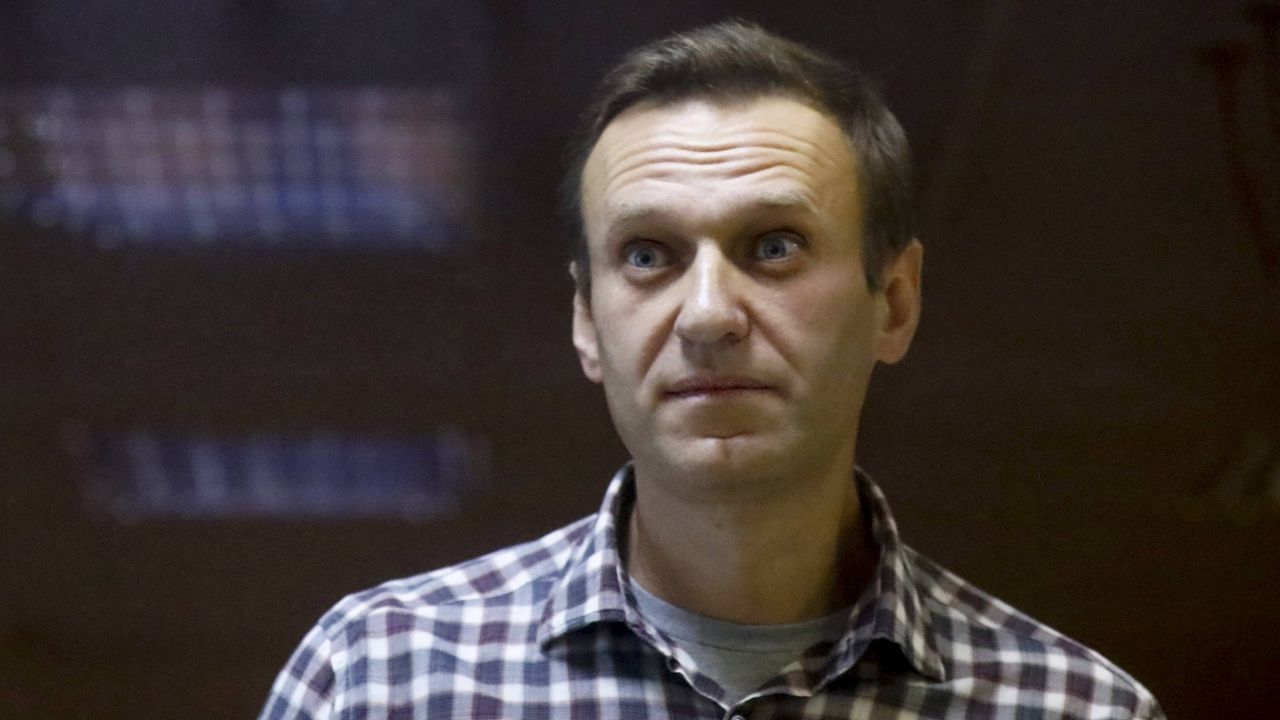Russia is facing calls to provide jailed opposition leader Alexei Navalny, who is said to be in poor health, immediate medical attention.
What You Need To Know
- Russia is facing calls to provide jailed opposition leader Alexei Navalny, who is said to be in poor health, immediate medical attention
- The latest insistence came Friday from Germany. Government spokeswoman Christiane Hoffmann said in a statement Navalny "is in urgent need of medical assistance"
- This week, more than 500 Russian doctors signed on to an open letter to Russian President Vladimir Putin urging civilian doctors to evaluate Navalny and accusing the government of “deliberate infliction of harm”
- On Thursday, John Kirby, spokesman for the United States National Security Council, said the U.S. also insists that Navalny gets proper medical care
The latest insistence came Friday from Germany. Government spokeswoman Christiane Hoffmann said in a statement Navalny "is in urgent need of medical assistance.”
“We call on the Russian authorities to provide this immediately and completely,” she said, according to multiple reports.
This week, more than 500 Russian doctors signed on to an open letter to Russian President Vladimir Putin urging civilian doctors to evaluate Navalny.
They accused the Russian government of “deliberate infliction of harm” to Navalny and the Federal Penitentiary Service of denying him medication.
“The conditions of detention and the appearance of Alexei Navalny cause us great concern for his life and health,” the letter said.
“We demand an end to the abuse of Alexei Navalny,” the doctors added.
On Thursday, John Kirby, spokesman for the United States National Security Council, said the U.S. shares the doctors concerns “and continue to believe that he [Navalny] should be immediately released, obviously. And, short of that, to make — to insist that he gets proper medical care.”
Navalny, 46, said in messages posted to his social media accounts that he was transferred to a punishment cell on Dec. 31 for the 10th time. He described it as a “narrow corridor with cells on either side” and the cells being so close together that “two people sitting in the cells can have a conversation without even raising their voices.”
Navalny said he had rarely seen any other prisoners in the punishment cells before, which he thought was intentional to essentially put him solitary confinement. His lawyer, Vadim Kobzev, said that in recent days a prisoner had been sent to a hospital with flu and COVID-19 patients and then transferred back near Navalany afterward, “violating all conceivable sanitary and epidemiological standards.”
Kobzev said Navalny has had a fever and cough. He and Navalny have suggested the prison intentionally sickened the Russian dissident, calling it a “bacteriological weapon.”
Because beds in the punishment cells are fastened to the walls during the day, Navalny has been forced to deal with the illness standing on his feet for hours, Kobzev said.
Navalny’s lawyer said Thursday the doctors’ open letter appears to have had an impact. Navalny was given antibiotics and his condition had appeared to stop deteriorating, Kobzev said.
On Friday, Kobzev said the head of a tuberculosis hospital “did an inspection.” Navalny is still not receiving the medicine he needs and is feeling the same as he did Thursday, the lawyer added.
In August 2020, Navalny fell ill on a flight in Russia after being poisoned with a Soviet-made nerve agent. He spent five months in Germany recovering from the attack, which he blamed on the Kremlin.
He chose to return to Russia in January 2021 but was immediately arrested upon arriving at a Moscow airport. In March 2022, Navalny was sentenced to nine years in a maximum-security prison after a court found him guilty of large-scale fraud and contempt of court.
Navalny, the U.S., Germany and the European Court of Human Rights are among those that say his arrest and imprisonment are politically motivated.



